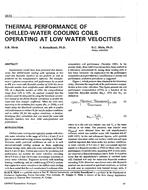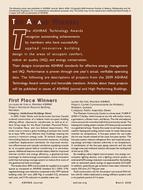We present a comparative study in which residential heating and cooling energy costs are analyzed as a function of window glazing type, with a particular emphasis on the performance of low-emittance coated windows. The DOE-2.1B energy analysis simulation program was used to generate a data base of the heating and cooling energy requirements of a prototypical single-family ranch-style house. Algebraic expressions derived by multiple regression techniques permitted a direct comparison of those parameters that characterize window performance: orientation, size, conductance, and solar transmission properties. We use these equations to discuss the energy implications of conventional double- and triple-pane window designs and newer designs in which number and type of substrate, low-emittance coating type and location and gas fill are varied. Results are presented for the heating-dominated climate of Madison, WI, and cooling-dominated locations of Lake Charles, LA, and Phoenix, AZ. The analysis shows the potential for substantial savings but suggests that both heating and cooling energy should be examined when evaluating the performance of different fenestration systems. Coating and substrate properties and the location of the coating in the glazing system are shown to have moderate effects as a function of orientation and climate. In addition, with the low-conductance glazing units, the window frame becomes a contributor to overall residential energy efficiency.
Units: Dual
Citation: Symposium, ASHRAE Transactions, 1987, vol. 93, pt. 1, New York, NY
Product Details
- Published:
- 1987
- Number of Pages:
- 15
- File Size:
- 1 file , 1.1 MB
- Product Code(s):
- D-NY-87-17-2


